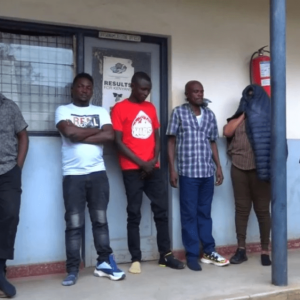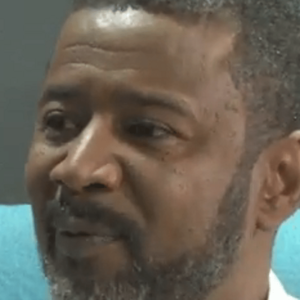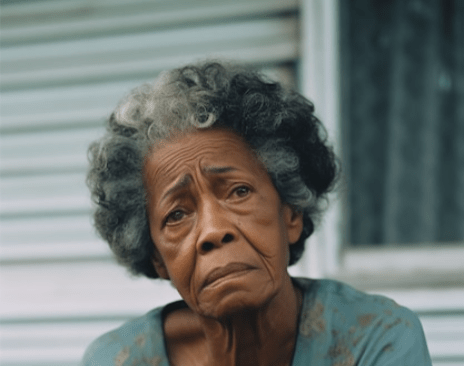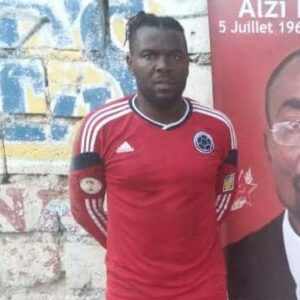__________________________________________
Chapter VIII
Letters
“Happiness is when your actions match your words.”
(Gandhi)
Richmond and Aurélien were sixteen and fourteen years old when they arrived at “boss” Francius’s house that morning of April 30, 1945, the same day that Soviet troops entered the Reichstag in Berlin. Adolf Hitler would commit suicide on April 1is May, that is, the day after. On May 2, following the death of Joseph Goebbels, General Helmuth Weidling will lay down his arms and surrender to the Russian General Vassili Tchouïkovthe winner of the Battle of Berlin. Germany would finally admit defeat, capitulate and sign its surrender on May 7, 1945, in Reims. However, two years before the outbreak of the great war of 1937 in Europe, President Raphael Leonidas Trujillo ordered the massacre of more than 30,000 individuals of Haitian origin established on the right bank of the Spanish territory. This situation of distress and despair caused a massive return movement of expatriate indigenous farmers, who wanted to escape death, to their native country. Unemployment and poverty did not diminish. When the world conflicts broke out in 1939, under the presidency of Sténio Vincent, the former mayor of Port-au-Prince, Haiti was found on the side of the Allies also called The Axis of Goodin opposition to the axis of evil. It was Sténio Vincent who negotiated the deoccupation of the national territory in 1934 with Franklin Delano Roosevelt, the leader of the Yankees in the White House. The violent clashes between the belligerent powers of 1939 devastated the world economy. The already weakened states, which included the Republic of Haiti, suffered more.
It was in this difficult, arduous and confusing context that poor Lucia, after many sacrifices, after having moved heaven and earth to make blood flow from the rocks, had unearthed the three gourds that would allow her boys to learn a trade and become honest men. She untied the red scarf, unrolled a point and handed the six fifty-cent coins to Francius who had hastened to pocket them. With this dirty and stupid war, business was going badly everywhere. And really badly for everyone. Almost all of Francius’ apprentices were forced to return to the countryside where they came from. Only the owner and his nephew Alfredo remained in the cabinetmaking workshop. For four months, there had been no orders, not even for a coffin. A week later, Richmond and Aurélien had to do the same. They packed up and returned to their lodgings at Hatte Rocher. The cabinetmaking business had closed down and Francius had moved to the capital, Port-au-Prince, where business, he had been told, was better. Provincial city dwellers were pouring into the capital like an avalanche of stones, and peasants stripped of their plots of land, in search of better living conditions, were filling the surrounding towns. What better life? All that awaited them at the end of their perilous adventure were famine, unemployment, vagrancy, prostitution, venereal diseases, prison, homelessness…
It was Céradieu, the boy from Luména, who had the idea.
“– Workers get paid well in Cuba,” he kept hammering into the heads of the two idle brothers. “Here, the Negro is wasting himself. Lescot is a traitor. He takes all the arable land to give it to the Americans. Cutting cane is very hard work, but we, the peasants of La Hatte Rocher, are used to working the land and raising goats, pigs, chickens and oxen. Our bodies remain stuck to the earth. The earth is our navel. The earth should only belong to those who could make it bear fruit with their hands and water it with their sweat. One day, I say it myself, and if I die before then, the ants will bring me the news in my grave, one day and I repeat it, the poor peasants, the landless peasants will no longer need to leave their country to go and drag themselves abroad in misery and shame.”
In truth, Richmond and Aurélien had never intended to emigrate before they met Céradieu. He was an intelligent boy. Despite his literacy problems, he seemed to know a lot about the world, especially his own little country. How could he have known all this without being able to read and write? Céradieu talked about politics… And especially about the United States and France… He wanted at all costs to learn to write letters, to decipher, to decode the words in big books, like those of Me Augustin Lexidor. In this way, he pointed out, he could have become at least a section chief at Hatte Rocher. He would not have been a “commander” like Francius Dévalus, the scamp, that kind of thug who pillaged crops, stole livestock, usurped the villagers’ lands to grant them to his mistresses. Anyone who dared to defy Devalus’ authority, or even maintained the habit of grumbling, would end up in Toussaint Louverture’s prison. Marvius Céradieu coveted the position of section leader to protect, defend, and rescue his fellow peasants. He remarked to Richmond and Aurélien:
“– All the poor, wherever they are, wherever they live, wherever they come from, are brothers and sisters. All peasants must join hands – I say it is a duty – to fight against the malicious people who have taken control of the State. One day, time will take care of changing the lives of wretches like us.”
A few years later, the great Argentine revolutionary and humanist, Ernesto “Che” Guevara [43] will take up the same ideas, but in different terms:
“Above all, always be able to feel in the depths of your heart any injustice committed against anyone, anywhere in the world. This is the most beautiful quality of a revolutionary.”
Céradieu Mérinord held this speech of sedition of the old Normilus Lebrave, a cousin of his father who lived in Carénage, one of the large shanty towns of the chief town of the department of Artibonite, which he often visited, to fill his days of idleness. Normilus was tyrannized by the authorities of the city of Gonaïves, who reproached him especially for instigating the voodooists of Marotte to arm themselves against the government to defend their rights to freedom of worship.
Every time old Normilus turned back to return to the resistance of the cacos and the crucifixion of the commander Charlemagne Masséna Péralte, on the 1is November 1919, the symbolic day of commemoration of the dead, tears flowed from his sunken eyes and the lacrimal fluid cut his wrinkled and flabby cheeks. He furtively wiped his face with his faded shirt. It was because it brought back scabrous, traumatic memories that were impossible to erase from his shattered memory. The old man did not even know where Amélia and the children were buried. He could not even go and put flowers on their grave on 1is and November 2, All Saints’ Day and the Maccabees. Even in the austere moments of his seclusion, his thoughts constantly turned to Granny and the little ones. Even in the moments of chemical deregulation of his brain, Normilus remembered that his in-laws had always devoted mortal hatred and implacable contempt to him, because of his positions in favor of the peasant masses. Adolphe Armand, Amélia’s father, made him suffer snubs. The nasty pawnbroker did not want him as a son-in-law. And the “rapiat” had not hidden it from him either.
“– Amélia, this man has strange ideas. I don’t want to see him hanging around my house after you. One morning, I’ll go and report him to the police myself. I forbid you to hang out with this good-for-nothing. This guy is an anarchist.”
And young Amelia replied firmly:
“– Father, Normilus is serious and honest. I don’t see a better young man than him in my circle. He is intelligent, generous, respectful, charitable and courageous. Several times, he came to the defense of the peasants of Bigot, Hatte Grammont, Canal Bois, Dubédou… dispossessed and exploited by the great donations. The destitute small farmers are stripped of their possessions and sign tenancy or sharecropping leases. In some cases, instead of the statutory half, the lessors demand and monopolize three quarters of the harvest, without considering the expenses required for production. Normilus has always advised tenants to revolt against this system of exploitation of their labor force, which is, according to him, in many ways, the equivalent of feudalism. He also makes them understand that the land should belong to the people who take care of it, that is, to the comrades who weed it, water it, sow it, weed it, until the time of the harvest. And I completely agree with Normilus.
And the father answered with his arrogant and disdainful air:
“– Amélia, I understand you… I can even add that Normilus and you, the two of you make a pair.”
Undaunted, Amélia continued:
“– Most of our social science teachers, committed and humanistic, have also explained to us the situation of farmers who operate in the sharecropping system. The fertilizers they use to feed the plants, they procure them themselves with the meager profits they get from their negligible share… Our country needs men and women like Normilus Lebrave. Agricultural workers, laborers, day laborers cannot defend themselves alone against the bourgeoisie. They must do so with citizens who embrace their cause, who raise their awareness, who guide them, who show them the path to change, the road to justice and the path to freedom.”
Normilus also had a hard time putting up with Adolphe Armand, the condescending, ungraceful and self-centered father-in-law. In general, he despised venal speculators like Armand, Amélia’s father, who made his money on the backs of destitute country people. One fine day, Armand chased his only daughter out of his house and disinherited her. Normilus married her and offered her a life according to his meager means as a rural schoolteacher. Amélia never complained. She never regretted the princely life she led at Armand’s. “Ah, Mémé! without turning from your path…” As always, this eloquent sigh opened the floodgates of lyricism of the old man who could not, like a fish caught in the mesh of a fishing net, free himself from his immense sorrow and his profound prostration. The pain rolling in his heart weighed heavier than a compactor. The Nordé rose in the foliage of the almond tree-country and propelled folk songs, popularized in the Haitian peasantry, which made the sky and the earth stamp their feet.
Three leaves three roots royal
Throw away
Pick up remember
I have my garden
three leaves fall into it
Throw away
Pick up remember
Three leaves fall
In my tub…
___________________
Three leaves
Three roots oh
Throw away to forget
Pick up to remember
I have my own garden
Three leaves fell in
Throw away to forget
Pick up to remember
Three leaves fell into my pond…
Normilus and Céradieu, to the nasal and hoarse sound of an old banjo, sang until the early hours of the morning.
Royal Latibonite
They sent to speak to me
Yo in Sole malad
Sole sick he lies down
Royal Latibonite
They sent my speech
They say I am sick
When I arrived
I found Sole dead
This is regrettable
To bury Sole…
____________________
Oh Artibonite!
On m’a dit
That the Sun is sick
He stays in his bed
Oh Artibonite!
On m’a dit
That the Sun is sick
When I arrived
He was already dead
It’s unfortunate for me
To bury the Sun…
Outside, the violent wind tore the lobed leaves of the oaks and the roofs of the kneeling cottages, erected in the sick lungs of the Carénage district. This locality, a stronghold of the Fantine and Gavroche families, was also home to a vast gaguère run by a certain Moïse Jolibois, a spiritualist and tax collector at the Poteau market. The trainers and owners of fighting cocks flocked every weekend to this teeming place to sometimes bet considerable sums of money. The sore losers often provoked heated, unbridled disputes, which degenerated into pitched battles, and the gendarmes, also anemic gamblers, were obliged to get involved. They proceeded to arrest the troublemakers and took them to the gendarmerie. [44]where they remained locked up for two or three days, the time for the belligerents to come to their senses and calm down. The barking of the hungry dogs, unable to fall asleep, mingled with the bleak, gloomy and depressive voices of the two men sitting in front of a bottle of “tafia”. Normilus’ thumb traveled gracefully over the stiff strings of the old instrument he had made himself. The night advanced in a clear and pure sky. Without clouds. That was the only thing that the neocolonists had not taken away from the Caribbeans. The luster that the full moon gave to the unstable firmament, inherited from the Alcyonian days, further disturbed the confused, troubled, traumatized brain of Normilus Lebrave. This painful past constricted his chest like a too-tight Siam straitjacket. The loss of his wife and children made his life insipid. And he was eager, really eager to go and find them on the other side of life. At least he wasn’t spleen-ridden. That night, when the Cynic philosopher of Greek origin, Hipparchus, probably, was discussing “stellar magnitude” with the spirits of the beyond, Normilus heard one last time the sweet voice of Amelia calling him from an invisible, immaterial and distant country. He stopped playing and singing so as not to upset and stifle the sweet sensation that the hallucinating voice produced on his ecstatic mind. This voice that the Nordé could not carry away far away, like that of Céradieu and his own, brought back the same memories that never stopped fiddling with his brain like the hammer of Fénelon, the blacksmith of the rue Lozama, bounces on the red-hot iron and the anvil.
A gloomy dawn broke over Carénage. The city was still sleeping in total darkness. Above the bourgeois houses and the modest ajoupas hung a whole garrison of cumulonimbus clouds. A few minutes later, the downpour began and stopped in the early morning. The door of the old Normilus’ old hut remained closed all day. Céradieu Mérinord found his old companion hanging at the end of a rope.
On the raffia mat that served as a bed for the suicide, two letters written in blue ink on a red paper support: one addressed to the Good Lord; the other intended for President Élie Lescot.
Fairing, October 17, 1944
His Excellency Elie Lescot
President of the Republic
Excellence,
At this memorable time when nations have been engaged for five years in a torrid war, Normilus Lebrave, former teacher and patriotic citizen, dares to say out loud what the Haitian people think of you.
By the time you read the contents of this letter, I will have already been transported far away to the kingdom of my ancestors, those who bequeathed me a free and sovereign country at the risk of their lives. A homeland. I am talking about Caonabo, Cotubanama, Anacaona, Henri, Ogé, Chavannes, Boukman, Jean-François, Biassou, Louverture, Mackandal, Pétion, Dessalines, Christophe, etc. All of them sacrificed their existence so that my people would never again be the slaves of a foreign power.
Out of respect for our historical epic, the boots of our enemies should never tread on the sacred places where the artisans of our honorable Liberty are buried and venerated. Remember the commanders who whipped our great-grandfathers to force them to work in the coffee, cotton, cocoa fields, etc., in order to enrich the white settlers, they were black, descendants of Africa like them, like you, like all of us. If the white master always seeks to divide us, it is only to better exploit us. Today, you are not on the side of the people. You represent the interests of the white occupiers. You grovel before them. You impoverish the peasants by usurping their plots of land. Foreigners control all the food production of our country. You helped the United States destroy our indigenous army to establish in its place an army of occupation and coup d’état.
Mr. Elie Lescot,
Do you still feel worthy of leading the nation? I, Normilus Lebrave, in the name of the Haitian people, declare you stateless, traitorous and disloyal, for having collaborated, like Conzé, with the enemies of the homeland.
The entire Haitian people condemn you before the tribunal of history.
Sign,
Normilus Lebrave
Patriot and revolutionary
______________________
No one had ever known what was contained in the sheets of light red paper, filled with words in blue letters, that the neighborhood chief, Pierre Oracius, had taken the care to fold, to then let them slip into one of the pockets of his stiff yellow khaki jacket, naturally after having given the impression to the audience that he had taken note of everything that was mentioned there. Despite everything, Oracius had not managed to lower the curtain on the severity of his intellectual handicap. The inhabitants had known for a long time that he too was not spared from the scourge of chronic illiteracy, which ravaged the entire peasantry and the shantytowns, like “the animals sick with the plague” by Jean de La Fontaine. After the death of the pack donkey, many years later, a member of his family discovered the two posthumous messages from Normilus, and he circulated them throughout the city.
The second correspondence, Normilus Lebrave had addressed to God the Father.
Fairing, October 17, 1944
God the Father
Heavenly Kingdom
His Holiness,
My name is Normilus Lebrave. But my name probably doesn’t mean much to you. I am a wretch and an anonymous person. However, that is not the purpose of my approach.
At a time when war is ravaging Europe, when a monster named Hitler is leading humanity to destruction and ruin, there is here a people, a great people, who are suffering and lamenting desperately. I am one of them myself.
Behold! We are descendants of slaves torn from Africa, and you know better than we do the cruel history of our calamities and the sources of our setbacks. The Europeans, particularly Spain, England, France… with the encouragement, support, connivance… of the Vatican, crucified us on the cross of sorrow of your Son. They exterminated the natives and forced us to replace them in the gold mines and agricultural plantations. We fought valiantly to free ourselves from slavery. However, our Freedom is constantly threatened by the colons.
Forgive me for telling you this, I have never been able to grasp the meaning of your policy towards the men and women you call “your creatures”. How could a father reserve different and unequal treatment for his own children? How could a faithful and just God have come to create an unfaithful and unjust nature? Do not be angry, Master, if I take the liberty of speaking to you in this tone, with all the frankness and courage that characterize the peasant Normilus Lebrave, originally from La Hatte Rocher. I am simply trying to understand, and the best way to do this is to ask questions.
To tell the truth, I feel frankly embarrassed to continue to live in a world where wealth as well as poverty are placed on comparative axes: very rich, richer, equally rich, less rich, very poor, poorer, equally poor, less poor… What an idea to want to have countries and individuals who have practically nothing in common on the social and economic level coexist on the same planet…!
In a few minutes, I intend to take my own life. I wanted to ask you to order the Angel Gabriel, your messenger, to come and retrieve the cross of your Son Jesus, where the leader of the Spanish bandits, Christopher Columbus, planted it and forgot it, that is to say, the Môle St-Nicolas. This “thing” is causing us terrible misfortunes and unspeakable suffering. On this land of Freedom and Heroism, there is no Golgotha.
So you created the universe. Today it is in an unbearable state for the poor. I doubt that it can change itself in their favor. It is therefore up to the weak and the small to organize themselves, to give themselves the means to become strong and great. In this sense, I am dying, but do not despair. My country will astonish the world once again.
I beg you, dear Master, to excuse me for the permission I have granted myself to disturb you in the bliss of your celestial kingdom.
Humbly,
Normilus Lebrave
Patriot and revolutionary
________________________
Normilus knew that his mission on earth, as with old Orin, Shōhei Imamura’s character in ” The Ballad of Narayama “, had ended. His grief strapped him like a horse. His resilience was at half-mast. The horrible weight of his loneliness pressed on his chest like the legs of an elephant on the head of a wild gazelle. The complications of inappetence and dysgeusia aggravated the already wasting conditions of his morbid vitality. His tongue lost its taste property over the years. His long days and sleepless nights drifted into the waters of alcoholism and smoking. But Normilus didn’t give a damn. The hundred years war which pitted the Valois dynasty against that of the Plantagenets. The former schoolteacher was convinced that he had nothing left to lose. Nothing left to hope for. He did not suffer from hypochondria. Like many ill-born locals, he had prepared to leave the train of hardship to cross the border of the spiritual universe o where, he believed, his wife and children were waiting for him. The idea of illness and death did not draw from him a single tear of dread. Had he read Marcus Aurelius on the fatal subject? Death may be just a change of places. “Without even blinking, he spent hours staring boldly at the “reaper.” Normilus, every night, lay down on the doormat of his destiny, and waited for Thanatos and his brother Hypnos to manifest themselves. It was Epictetus who said it: ” The principle of all evil for man, of baseness, of cowardice, is not death, but rather the fear of death.. » This philosophical consideration did not at all correspond to the temperament and situation of the patriot Normilus Lebrave. His anxiety about life exceeded his fear of death, encroached on his anguish of death.
Similar articles







